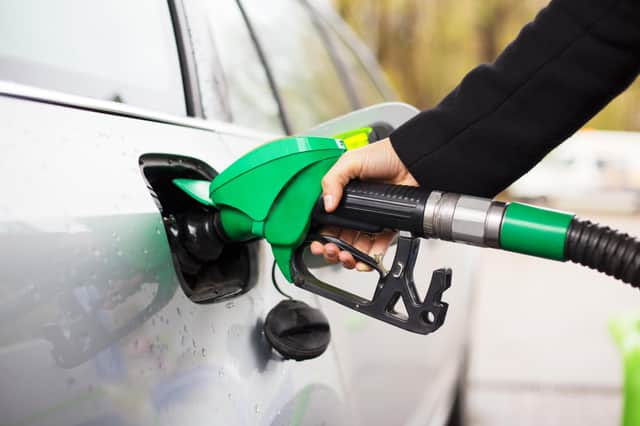The average price for fuel in Northern Ireland as filling up a family car tops £100 across the UK


Around this time last year, the cost to fill a tank with petrol was £69.36.
While the cost of filling up a family car has now topped £100 in every region of the UK, it is motorists in Northern Ireland who have seen the biggest increase at the pump, with prices up a staggering 49 per cent from this time a year ago.
Advertisement
Advertisement
Earlier this week, the average price per litre of unleaded in Northern Ireland was 187.57p, while diesel was costing 191.17p per litre on average.
The cost is broadly similar across the regions, but the highest prices are found in London, where a tank of petrol costs £103.23, while the North East has the lowest prices at £102.06.
The figures were supplied to Farming Life by data firm Experian, which has a database of all petrol stations across the UK and Ireland, and are based on filling a typical 55-litre family car with a full tank of unleaded on 15 June.
Pressure is growing on the government to take further action in relation to fuel prices.
Advertisement
Advertisement
The RAC said the Treasury is now pulling in £46 in tax on a full-tank fill-up for an average family car and has urged government to do more to help motorists.
RAC fuel spokesperson, Simon Williams, commented: “While fuel prices have been setting new records on a daily basis, households up and down the country may never have expected to see the cost of filling an average-sized family car reach three figures.
“With RAC research showing as many as eight-in-10 depend on their cars, many must be wondering if any further financial support from the government will be forthcoming.
“March’s five pence fuel duty cut now looks paltry as wholesale petrol costs have already increased by five-times that amount since the Spring Statement (25p).”
Advertisement
Advertisement
He continued: “A further duty cut, or a temporary reduction in VAT, would go a long way towards helping drivers, especially those on lower incomes who have no choice other than to drive.
“It’s also important to remember that the government is still benefitting from the high fuel prices by taking around 30p in VAT from every litre sold.
“This compares to just 25p before Russia invaded Ukraine.
“On top of this, the government is still collecting 53p fuel duty from every litre.”
Business Secretary Kwasi Kwarteng has ordered a review into March’s fuel duty cut amid claims that retailers have failed to pass the five pence per litre saving on to customers.
The government has warned retailers that they could be ‘named and shamed’ if the inquiry by the Competition and Markets Authority finds any wrongdoing.